Defenses get ready to act!
The most sure and simple treatment for getting over an allergy is avoiding the allergen itself, but also reinforcing your immune system with a healthy and balanced diet.
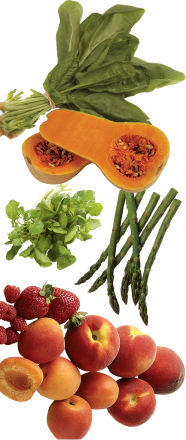
+ There are nutrients that are fundamental in keeping the immune system strong, a nutritional deficiency can weaken your body's natural defenses. Among these nutrients, foods with vitamin A, derived from animal products: dairy products, butter and fish oil; and from vegetable products: orange colored fruits and from vegetables (carrots, squash, asparagus, melon, peaches, apricots), red (tomato, beets) and deep green vegetables (spinach, kale, radishes, lettuce, parsley). These are also important foods for vitamin C, which is widely known for its effective action in preventing colds. Vitamin C also acts on the entire immune system, strengthening and preventing other infections. Vitamin C rich foods include: guava, kiwi, mango, cherries, rosehips, pineapple, citrus fruit, melon, strawberries, berries, peppers, tomatoes and leafy vegetables such as broccoli, cabbage and cauliflower and other garden fruits and vegetables.
EVERY DAY
For the body to get the necessary amount of vitamin C you should drink 1 glass of fresh squeezed orange juice daily. For juices, you should always drink fresh squeezed, if you leave them out or store them in the refrigerator they lose some of their nutrient properties.
Another immune stimulating vitamin is vitamin E. Vitamin E rich foods include: wheat germ oil, soy oil, cereal grains or wholewheat grains, olive oil (extra virgin olive oil, uncooked), green leafy vegetables and nuts. Also, sunflower seeds, sesame seeds and flaxseeds and dried fruits can help to prevent skin problems.
Another nutrient which is important but rarely mentioned is folic acid (vitamin B 9 ). A deficiency of folic acid causes a decrease in the body's ability to fight antibodies and can cause vulnerability to conditions such as anaemia and intestinal parasites. It is found in beans, dried fruits, cabbage, spinach, broccoli and other green vegetables, almonds, peanuts and yeast.
CARROTS FOR YOUR SKIN
Eating 1 carrot daily as a snack is a good habit and helps to prevent many skin problems such as skin eruptions, eczema and dermatitis.



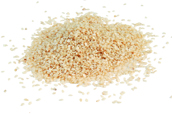
TO PREVENT ASTHMA
Wash 1 cup of sesame seeds, dry them in the sun and toast them. Mash 1 cup of nuts with the sesame seeds and ½ cup of ginger to extract the juice. Mix well all the ingredients and store in an airtight container. Eat 3 to 5 teaspoons of this mixture, 2 to 3 times a day.
MINERALS ARE IMPORTANT TOO
Not only vitamins are important for your body's defenses; minerals also play a key role. Among them, iron is fundamental. Iron deficiency is quite common, especially in young people and in pregnant women. A lack of iron, reduces your body's immune defenses; this is why it's important to eat iron rich foods. They include: red and white meats, beans, nuts, raisins, lentils, sunflower seeds and some green vegetables (artichokes, bitter greens, watercress and spinach). It's also important to eat foods rich in magnesium, to keep the bronchial muscle clean and relaxed, improving breathing. This mineral is present in nuts (especially almonds), soy, oatmeal, figs and dates.
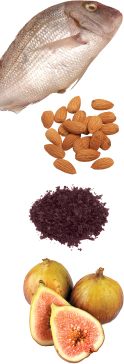
Manganese along with vitamins from the B group, provides the body with energy, while helping the body to metabolize nutrients. It strengthens the body's resistance to illnesses, fortifies the nervous system, stimulates breast milk production and reduces the risk of diabetes. Some manganese rich foods include: whole grain cereals, nuts, rice and wheat, spinach, nuts, pineapple, common tea, cloves and ginger.
You can't discount the importance of zinc. A deficiency of this mineral affects the immune system, especially the lymph organs and provokes a drop in the body's defenses. It's found in shell fish, meat, brewer's yeast, wheat germ, oats, beans and nuts.
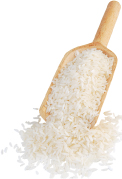
WHAT YOU SHOULDN'T LACK IN YOUR DIET
Some foods (fried foods, saturated fats, coffee, sugar and alcohol) reduce your immune system's ability to fight off ailments. But there is a number of natural foods that increase your defenses:
- • Olive oil. This oil contains a number of poli-unsaturated fats (oleic and linoleic acids), it stimulates the body's defense mechanism important for the heart and arteries.
- • Garlic. Improves the potency of the T lymphocytes. Eating garlic helps the body to increase the number of its natural protective cells.
- • Fresh fruits and vegetables. Because of their high content of vitamins, minerals and other nutrients, fresh fruit and vegetables play an important antioxidant and revitalizing role.
- • Yogurt. Bacteria found in yogurt helps our immune system and strengthens the intestinal lining.
- • Seasonal fruits, onions, squash, carrots, pollen, honey, parsley, avocado, tomato, and fish help to protect the body against allergies. It's recommended to eat fresh blue fish at least twice a week.
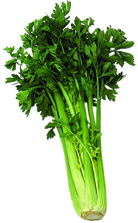
NATURAL SOURCE OF HEALTH
Natural fruit juices have a number of nutritional values that work somewhat like vitamin supplements. People suffering from allergies can opt for various combinations: 2 carrots and 2 beets; 1 artichoke and 1 celery stalk; 3 carrots and 1 celery stalk.

PROTECTING THE LIVER
Protecting the liver is important for people with allergies. A good way of protecting it is to avoid fried foods, saturated fats and rich foods.
Lemon is also important. You can use lemon as a condiment or in lemonade.
PROTECTING FOODS
Mediterranean diet
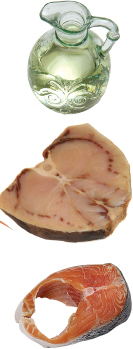
A Mediterranean diet is one of the most complete and widely recommended by nutritionists because of its ability to strengthen the body's defenses and to prevent the discomforts brought on by allergies. This is thanks to the diet's richness in nutrients, vitamins, antioxidants and the essential fatty acids found in olive oil and fish. Typical foods in this diet include:
- ∎ Olive oil, widely used in Mediterranean cooking. It is rich in mono-unsaturated fatty acids. Many studies have shown that fatty acids regulate HDL (“good cholesterol”) levels and LDL (“bad cholesterol”) levels in the blood. This helps to prevent and protect the heart against cholesterol plaque building up in the arteries.
- ∎ Fish has fats that are very beneficial for the health. Studies have shown that populations living on Greenland, whose diet is made up exclusively of fish, and no vegetable oils, have low incidences of heart disease. This is because of their high intake of the poli-unsaturated fats found in fish, more specifically Omega-3 fatty acids. This component increases HDL and lowers LDL.
- ∎ Beans, cereals (rice, pastas and many other wholewheat foods), fruits and vegetables are plentiful in a Mediterranean diet. In addition to a wide variety, it contains vitamins, minerals, antioxidants, fiber and complex carbohydrates.
MISO, SPECIALLY DESIGNED FOR ALLERGIES
Miso is a savory paste made from fermented soybeans. It's helpful against the allergies produced when the body can't use the proteins in the intestines, and considers these substances invaders acting against them. Miso is high in healthy bacteria, generated during fermentation, that helps the intestines break down complex proteins. Animal protein fatigues the kidneys and leaves behind toxic residues that can harm the arteries, heart and nervous system; many times they can cause allergies and acid in the blood. Miso, helps to neutralize the effects of animal protein. Miso also contains iron, calcium and phosphorus; it's a great ingredient in soups and to put over boiled vegetables, cereals and beans.
Warning. Miso is high in salt and should be used in moderation, especially for cases of hypertension and kidney problems.
CUCUMBER SLICES WITH MISO DRESSING
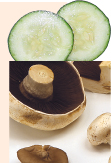
Ingredients
- • 1 tablespoon olive oil
- • 1 small leek stalk or ¼ onion, thinly sliced
- • 1 tablespoon miso
- • 1 tablespoon shredded ginger root
- • 1 mushroom (shitake) thinly sliced
- • 1 large cucumber, sliced diagonally and finely.
Preparation
Heat in a wok or pot and cover with oil. Add all the ingredients, except for the cucumber and sauté over low heat, constantly moving for 4 minutes. Sit to cool and cover the cucumber slices with the dressing.

Comment about this article, ask questions, or add new information about this topic: